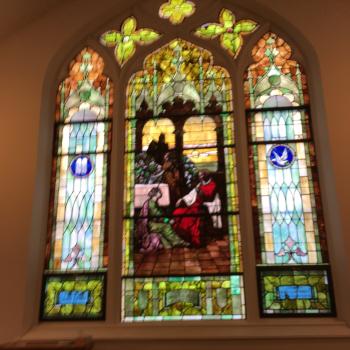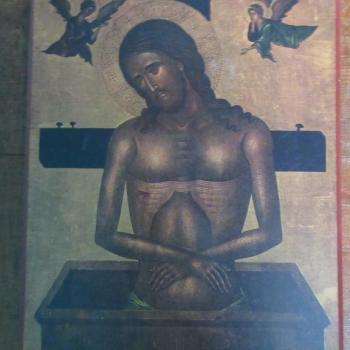As has been reported all over the Catholic blogosphere, Miguel H. Díaz was selected by President Obama for the position of ambassador to the Vatican. I’ve not studied his works, so I cannot really discuss his theology. The problem is, most people commenting on him have not studied his works either, but they are willing to criticize him for being “liberal” and “unfaithful” without knowing who he is or what he stands for. Yes, it’s a given that he voted for President Obama. Yes, he supported President Obama during the campaign. Neither of those makes one unfaithful. There is currently no political litmus test for Catholicism. One can ask why he supported Obama, why he thought Obama was the best choice, and what he thinks of those issues which Obama does not agree with the Church. But one shouldn’t presume answers, and put words in his mouth, especially if one does not know who he is, what he has said and written before. It seems the way people have already found reason to question him is because of his associations; but we need to remember, guilt by association is a fallacy, and the associations are the ones one would expect for someone chosen by Obama — i.e., an Obama supporter, which goes back to what was said above, that alone doesn’t determine whether or not one is a faithful Catholic or not (though it seems people are already thinking it does, and are all ready to attack L’Osservatore Romano of all things, because it isn’t “politically correct” — the irony of it all!)
The few things I’ve read about him do not really tell me much. He’s Rahnerian. Some people have tried to make something out of this, as if Obama is trying to insult the Pope because the two didn’t always see eye to eye. Nonetheless, if you asked Pope Benedict, you will find he has much good to say about Rahner. In theology, where a diversity of views is possible, disagreement shouldn’t be seen as a sign of hostility. Another comment people have already made is that he is into cultural theology – he is Hispanic, and so he embraces the Hispanic cultural background as the basis for his theology. Is that any surprise? The Church expects this, and has come to welcome it, especially in her missionary work. Finally, it is clear he is interested in issues of migration and immigration, and it is clear he, as with the Church, looks to the example of the Holy Family with their journey into Egypt as a prime example of this way of life. Again, the little I’ve read and seen does not tell me much, but nothing in it appears to make him some radical, anti-Catholic “Marxist wedge” theologian being used by a slick Obama to damage Catholicism in the United States. If he really wanted to cause division in the United States, he would have gone a different route, and chosen someone similar to Michael Novak (someone more than willing to consistently and uncharitably blast anyone at the Vatican – even the Pope — who doesn’t agree with his politicized Catholicism).











